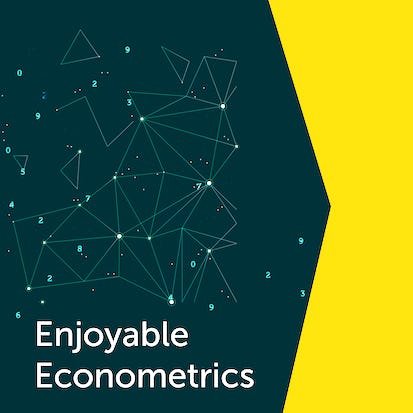- Level Foundation
- Duration 2 hours
- Course by Erasmus University Rotterdam
-
Offered by

About
The goal of this MOOC is to show that econometric methods are often needed to answer questions. A question comes first, then data are to be collected, and then finally the model or method comes in. Depending on the data, however, it can happen that methods need to be adapted. For example, where we first look at two variables, later we may need to look at three or more. Or, when data are missing, what then do we do? And, if the data are counts, like the number of newspaper articles citing someone, then matters may change too. But these modifications always come last, and are considered only when relevant. An important motivation for me to make this MOOC is to emphasize that econometric models and methods can also be applied to more unconventional settings, which are typically settings where the practitioner has to collect his or her own data first. Such collection can be done by carefully combining existing databases, but also by holding surveys or running experiments. A byproduct of having to collect your own data is that this helps to choose amongst the potential methods and techniques that are around. If you are searching for a MOOC on econometrics that treats (mathematical and statistical) methods of econometrics and their applications, you may be interested in the Coursera course “Econometrics: Methods and Applications” that is also from Erasmus University Rotterdam.Modules
Introduction Enjoyable Econometrics
1
Discussions
- Introduce yourself
1
Videos
- Introduction to Enjoyable Econometrics
Distribution, correlation and t-test
1
Discussions
- Examples of your own
6
Videos
- Is 4 a lot? And the importance of an average, a standard deviation and the empirical distribution
- Age, football and gender gap
- Do home teams get more penalty kicks than away teams?
- Does the relative age effect in football exist?
- For which countries is the gender gap the smallest and the largest?
- The wine example: properties across variables
Simple linear regression
1
Discussions
- Find Examples
4
Videos
- Prices and quantities of Spanish postage stamps
- Do soccer teams score lesser goals in an away match without their supporters?
- Has the performance of the Dutch Formula 1 driver Max Verstappen improved over the recent years?
- Test your knowledge
Multiple regression
1
Discussions
- Multiple regression examples
3
Videos
- Are the Olympic Games running out of budget less then before?
- What was the inflation in Suriname in the nineteenth century?
- Are train crossings getting safer?
Variants of multiple regression
3
Videos
- Can we retrieve inflation rates when data are missing?
- Can we predict the Color of the Year?
- Money and World Cup football: where will it end?
New cases with new techniques
1
Discussions
- More advanced econometric methods
3
Videos
- How volatile was inflation in the early modern period?
- Did we hear more from a Central Bank president during the 2008 crisis?
- Are there kids’ rights’ clubs of countries with similar performance?
Auto Summary
Discover the fascinating world of econometrics with "Enjoyable Econometrics," a foundational course offered by Coursera and delivered by Erasmus University Rotterdam. This engaging course highlights the essential role of econometric methods in answering real-world questions by first emphasizing the importance of data collection before diving into model application. Whether you're dealing with simple variables, missing data, or unconventional data types, the course demonstrates how to adapt methods to fit your specific needs. Instructor-led and meticulously designed, this course spans 120 hours and is perfect for anyone looking to apply econometric models in both traditional and innovative contexts. From combining existing databases to conducting surveys and experiments, you'll learn how data collection informs the choice of appropriate methodologies. Ideal for beginners in the Maths & Statistics domain, "Enjoyable Econometrics" offers a subscription option through Coursera's Starter plan, making it accessible and convenient for learners eager to delve into the practical applications of econometrics. Dive into this course and equip yourself with the skills to tackle diverse econometric challenges effectively.

Philip Hans Franses

